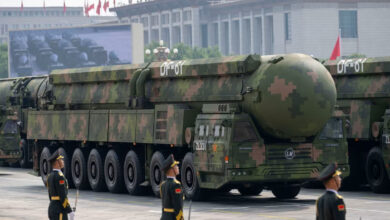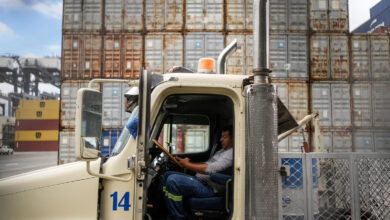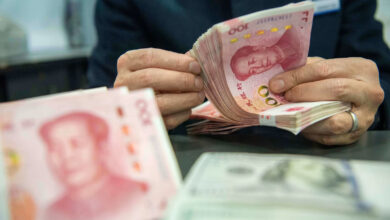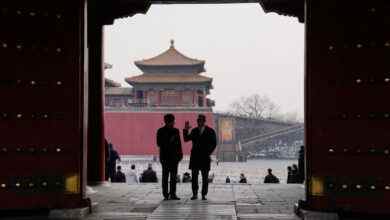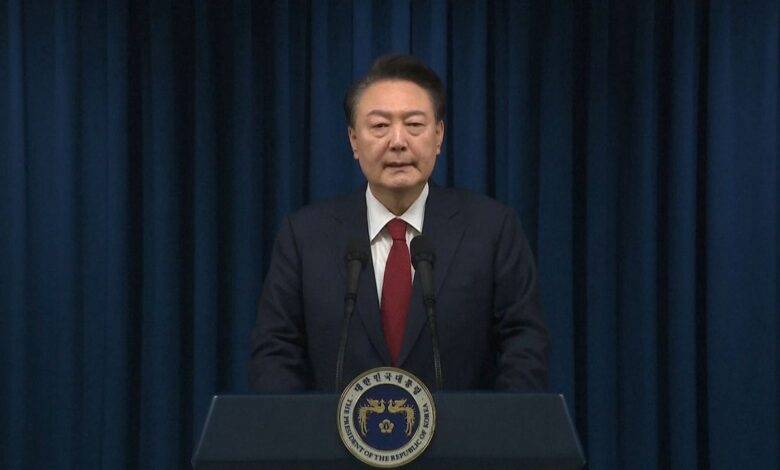
South Korea’s President Yoon Suk Yeol’s is set to survive impeachment after a vote against him was boycotted by governing party lawmakers on Saturday.
In another day of high drama, a number of lawmakers left parliament ahead of the vote to impeach President Yoon over his decision to impose a short-lived period of martial law earlier this week. Just two remained inside while the one governing lawmaker who returned voted against the motion.
At least 200 lawmakers are needed for the vote to be carried out. Outside the main hall, opposition lawmakers could be heard shouting, “Go inside [the chamber]!” and calling them “cowards.”
Voting is underway but will likely be rendered moot as numbers counted won’t be enough for the motion to pass. Less than two thirds of parliament now remain in the chamber.
If, as expected, it fails, the next available date lawmakers can vote on Yoon’s impeachment is Wednesday, December 11.
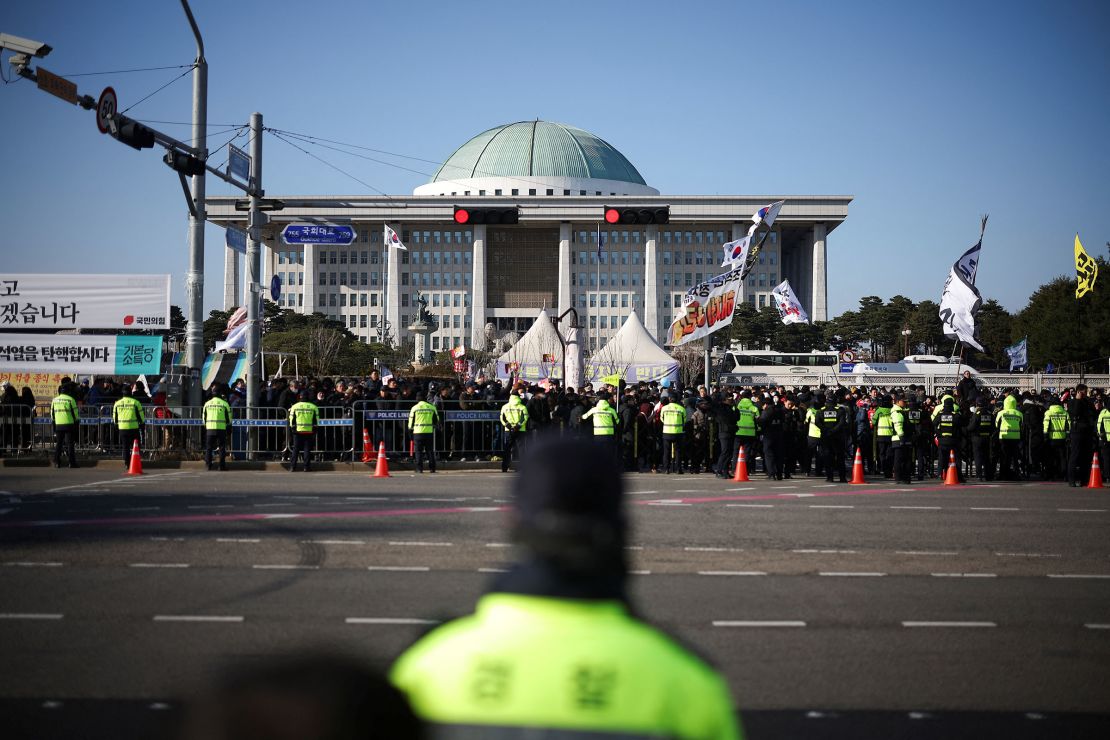
Yoon earlier apologized to the nation Saturday in his first public comments since his abortive attempt to impose martial law threw the country into political chaos and led to calls for his impeachment.
“This emergency martial law declaration stemmed from my desperation as the ultimate responsible party for state affairs,” Yoon said in a two-minute address.
“I am deeply sorry and sincerely apologize to the citizens who must have been greatly shocked,” Yoon said, acknowledging that he “caused anxiety and inconvenience” to South Korean citizens.
Yoon said he “will not avoid the legal and political responsibility related to this martial law declaration.”
The furor began late Tuesday night, when Yoon declared martial law in an unannounced television address, accusing the main opposition party of sympathizing with North Korea and of “anti-state activities.” He cited a motion by the Democratic Party, which has a majority in parliament, to impeach top prosecutors and reject a government budget proposal.
Yet within just six hours, the leader was forced to back down, after lawmakers forced their way past soldiers into parliament to unanimously strike down the decree.
Addressing rumors on Saturday that martial law will be invoked again, Yoon said “there will absolutely be no second attempt at a constitutional amendment.”
“I will entrust my party with methods to stabilize the political situation, including the remainder of my term… I apologize to the citizens for the concerns I have caused,” Yoon concluded as he stepped off the podium and bowed.
The declaration of a military emergency, although short-lived, was met with shock and anger across the country, which remains deeply scarred by the brutality of martial law imposed during decades of military dictatorship before it won a long, bloody fight for democracy in the 1980s.
Pressure on Yoon has mounted in the days since, with protesters and opposition figures demanding his impeachment – and support wavering even within his own party and the military.
Even if he survives the vote Yoon’s future remains uncertain after the leader of his party said his resignation was “inevitable.”
Speaking to reporters on Friday, Han Dong-hoon, chief of Yoon’s own People Power Party, said it was “impossible for the president to carry on his normal duties.”
On Friday, Han said Yoon needed to be immediately suspended from duty to protect the country from “grave danger,” in a dramatic reversal of opinion that compounds the pressure building on the president ahead of an impeachment vote in parliament.
Yoon’s apology came as new details emerged of the arrest list the president came up with during the upheaval, a significant turning point that prompted Han to call for Yoon’s suspension on Friday.
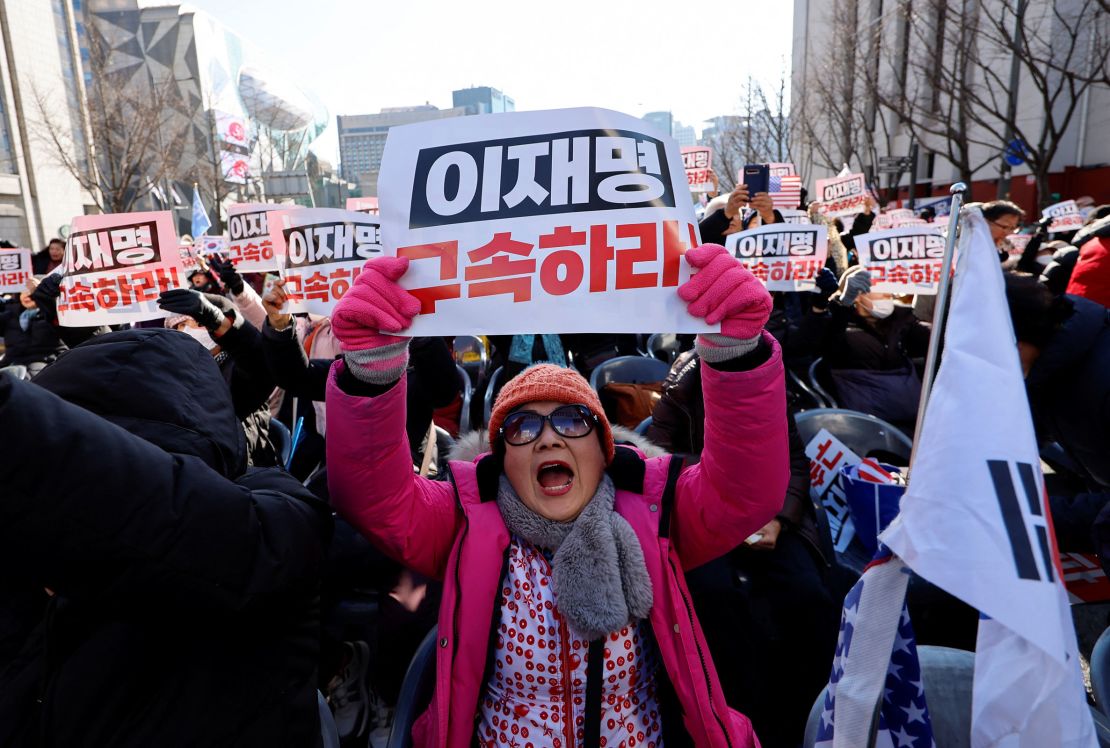
Shortly after martial law was declared, Yoon allegedly told Hong Jang-won, first deputy director of the National Intelligence Service, over the phone that he should take the opportunity to “arrest and clean everything up.”
Yoon said he would give the intelligence service authority to launch a counter-intelligence probe and “support it with funds, personnel unconditionally.”
Details were first revealed to reporters by lawmakers briefed about the phone conversation, and Hong on Saturday confirmed to CNN the veracity of the content.
Hong learned of the list through Defense Counterintelligence Command (DCC) later and thought it was “crazy,” lawmakers said earlier, citing him.
Han was on the arrest list together with a raft of politicians including opposition Democratic Party leader Lee Jae-myung.
This story has been updated.

